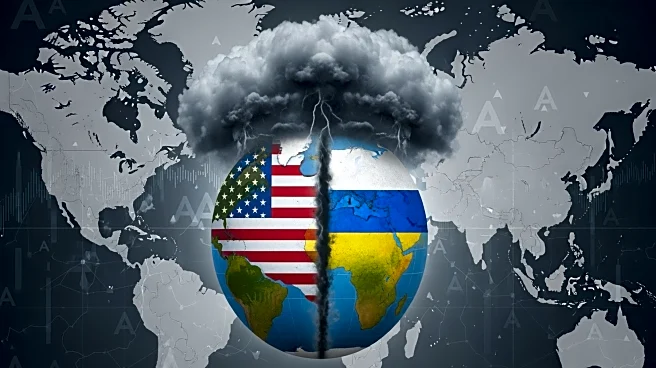What's Happening?
The ongoing conflict between Russia and Ukraine has extended into a fierce energy war, with both nations targeting each other's energy assets. Recently, the United States and Europe announced new sanctions on Russia's oil industry, aiming to weaken the Kremlin's
financial resources. These sanctions include blacklisting major Russian oil companies such as Lukoil and Rosneft, with the intent to deter global business engagements with these entities. Concurrently, Ukraine has been conducting drone strikes on Russian refineries, further intensifying the energy conflict. As winter approaches, Russia has escalated attacks on Ukraine's electricity and gas infrastructure, aiming to cripple the economy and lower morale.
Why It's Important?
The sanctions and energy attacks are significant as they represent strategic efforts by both sides to gain leverage in a conflict that has persisted for nearly four years. The U.S. and European sanctions are designed to cut off a major source of revenue for Russia, potentially impacting its ability to sustain military operations. For Ukraine, the energy attacks by Russia threaten to exacerbate the humanitarian situation, especially as winter sets in. The broader implications include potential shifts in global energy markets, as countries like India and China may need to reassess their oil import strategies in light of the sanctions.
What's Next?
The continuation of energy attacks and sanctions suggests a prolonged conflict with no immediate resolution in sight. The international community, particularly countries dependent on Russian energy, may face pressure to diversify their energy sources. Additionally, the effectiveness of the sanctions will depend on the global response, particularly from major oil importers. The situation may also prompt further diplomatic efforts to mediate the conflict and address the humanitarian needs arising from the energy shortages in Ukraine.















